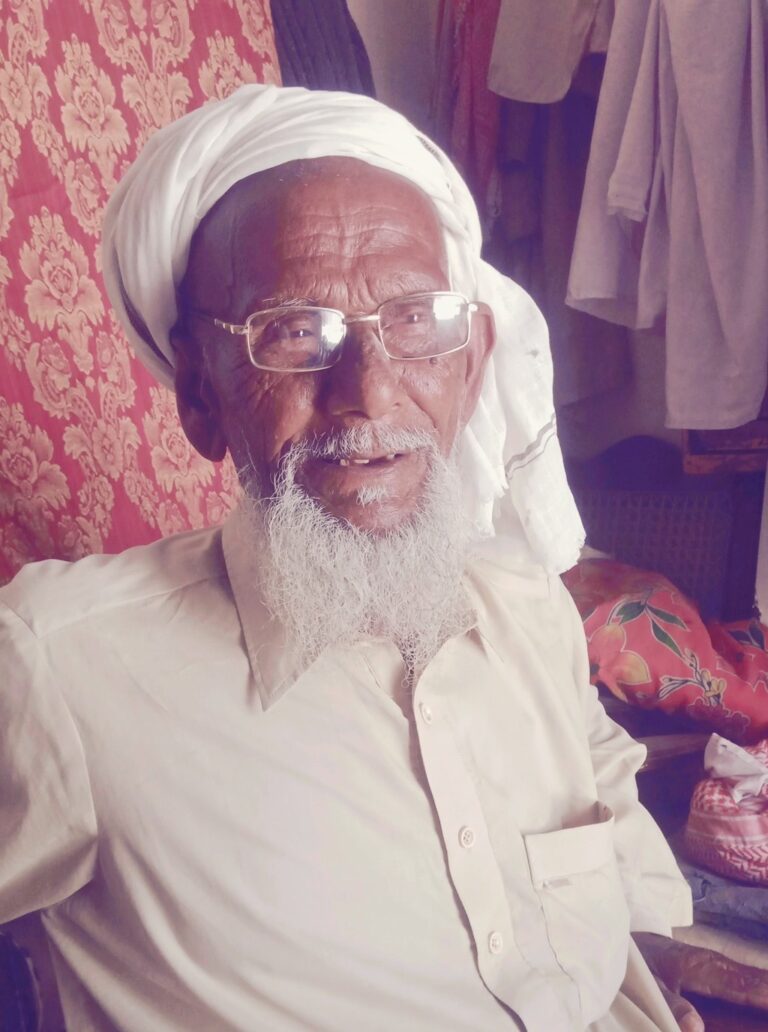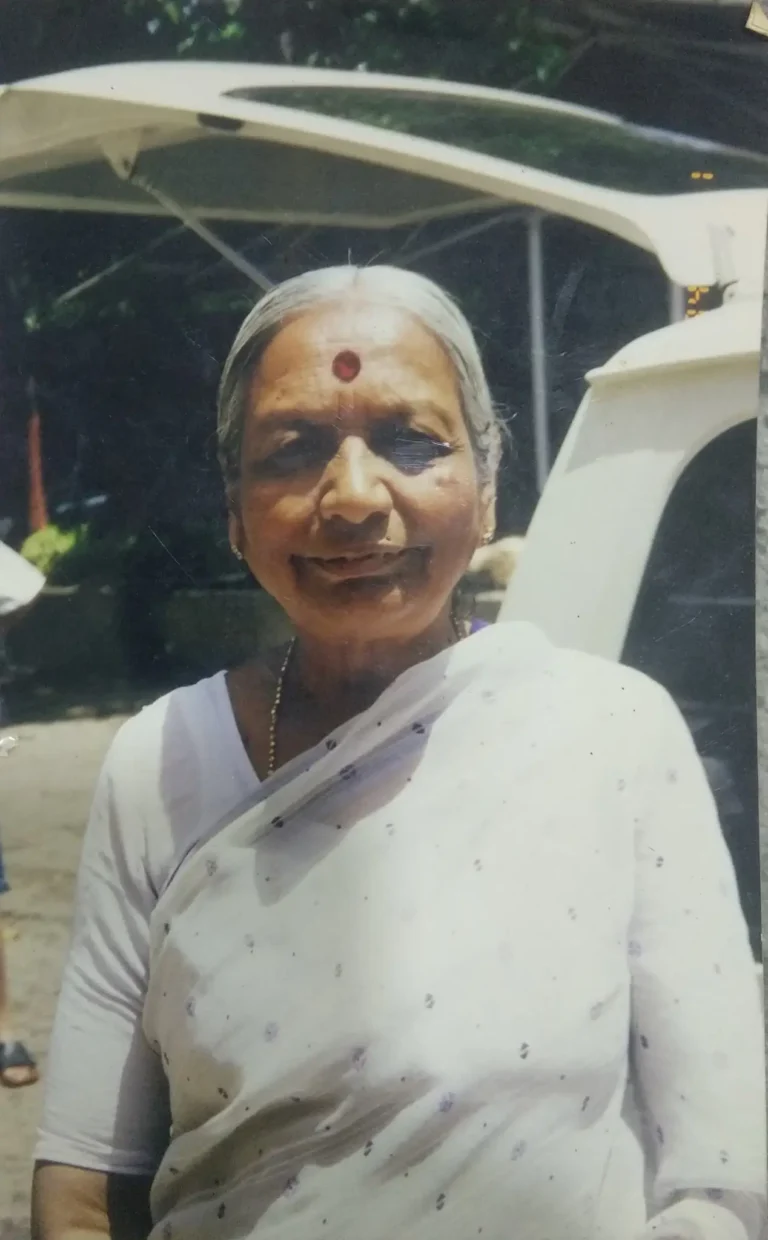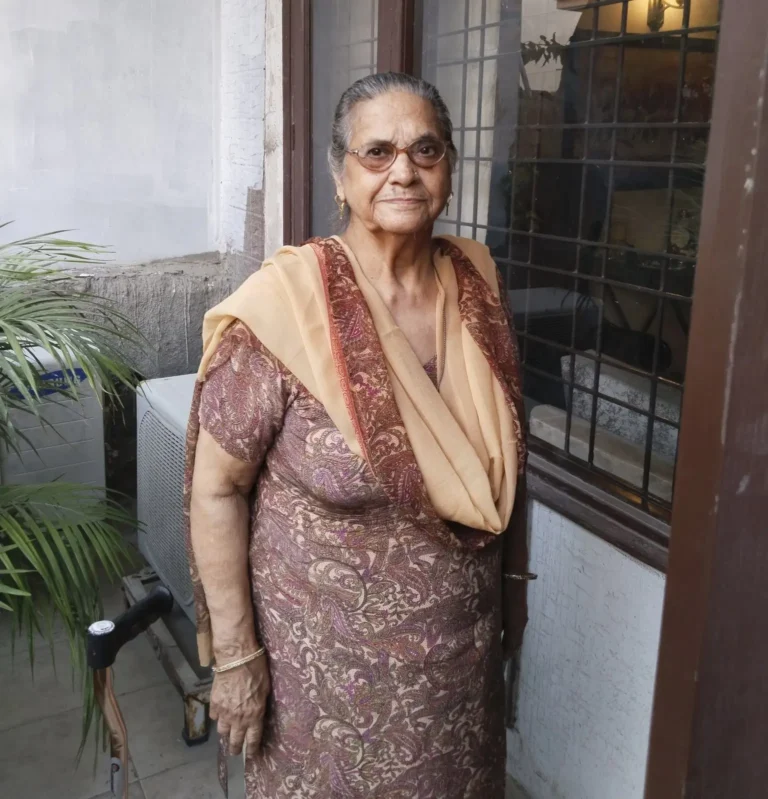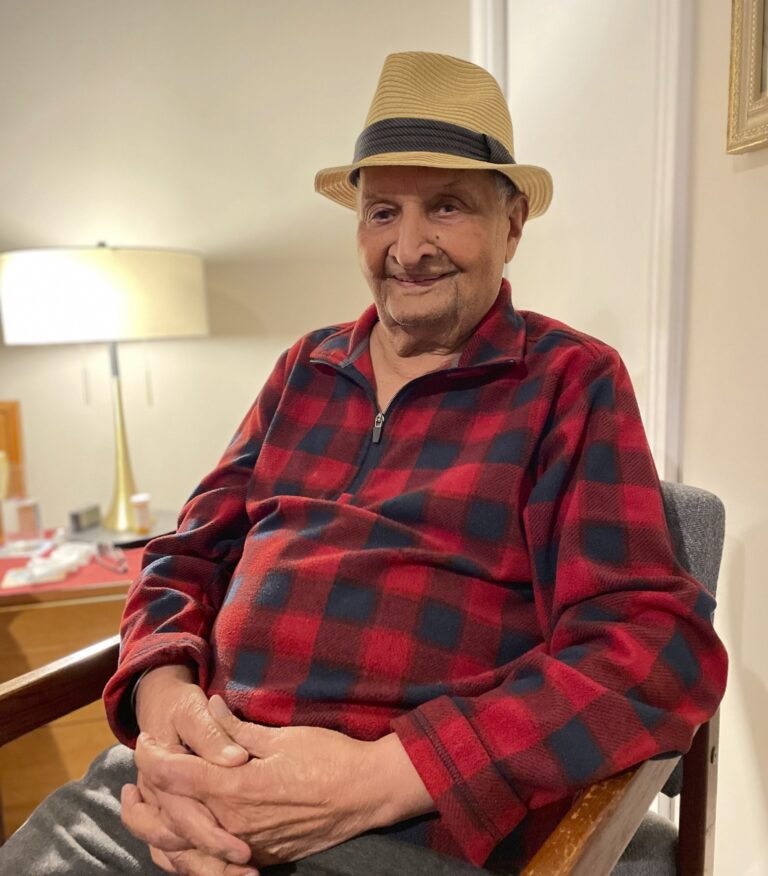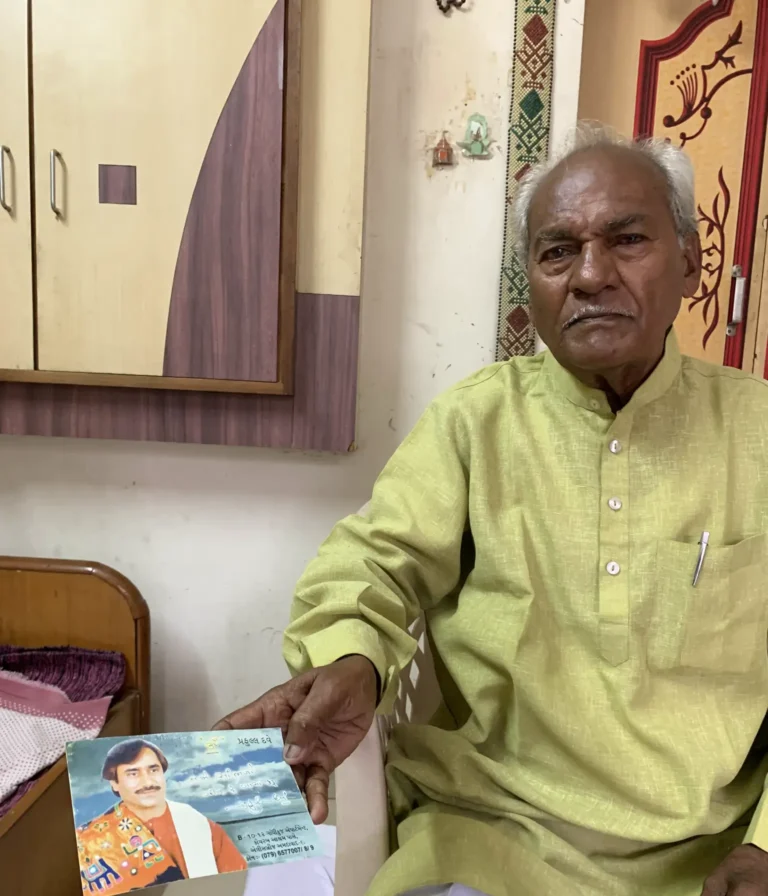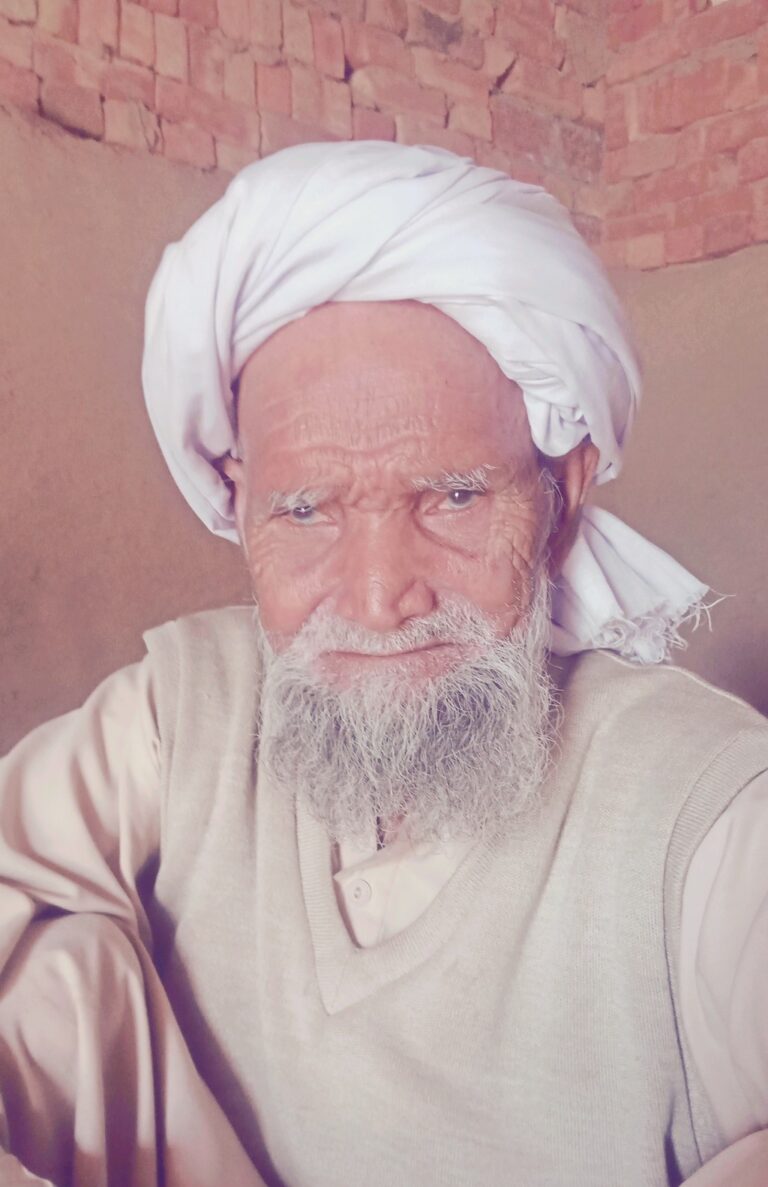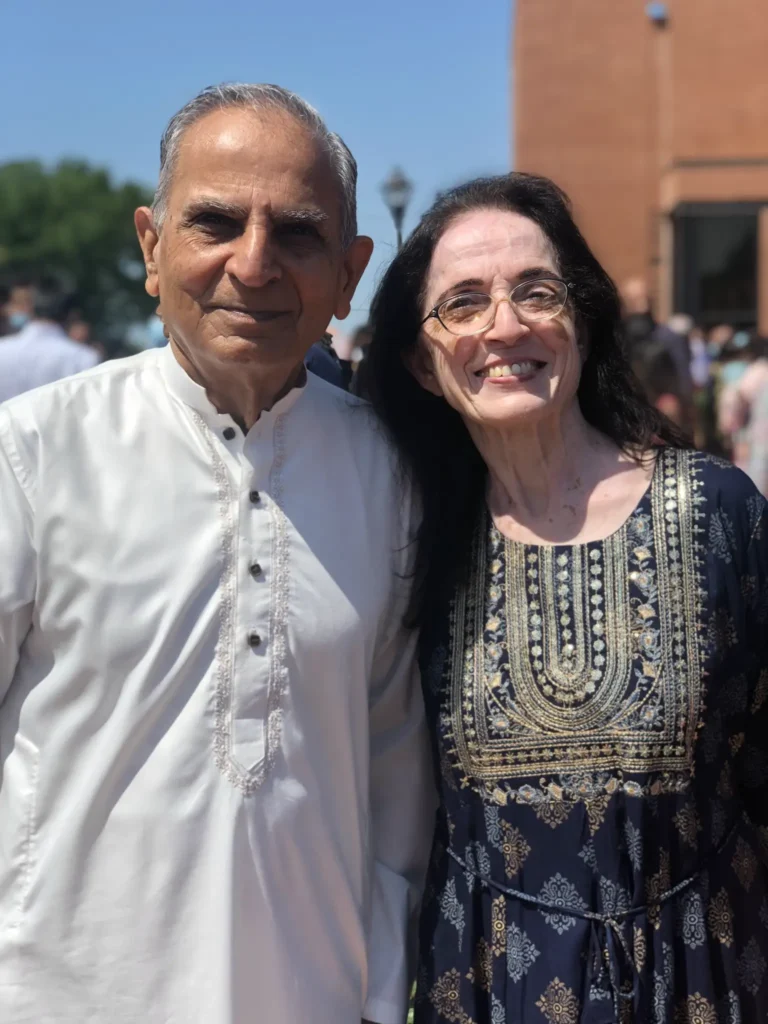Story:
I was born in 1910 in my ancestral home at Pahari Imli, near Churi Walan in Jama Masjid, Old Delhi. I was a freedom fighter and fought alongside my contemporaries, such as Bhagat Singh and Rajguru, against colonial powers. I have been profiled and documented numerous times by leading scholars and academics for my knowledge of Mughal history of Northern India. The study of my genealogy tells me that 23 successive generations of my ancestors hail from the family of Genghis Khan, the founder of the Great Mongolian Empire. My ancestors travelled from Mongolia to Iran, and then to Afghanistan. By that time, Babur, who laid the stones of the Mughal Empire in India, asked my ancestors to leave Afghanistan within two or three months. The two clans were both Mughals, but Babur’s side was that of Timuri Mughals, and we were the Changezi Mughals, so Babur did not want a fight and loss of soldiers, hence, he asked my ancestors to peacefully leave.
My family fought for this country and had been doing so for over 150 years. My great grandfather was a deputy collector under the British crown, yet, he participated in the revolt of 1857. He was later imprisoned for life. There had been various wars prior to 1857, within the various kingdoms in the subcontinent, but the reason it is known as the First War of Independence is because this was the first time that the masses at large took part in it.
My mother passed away when I was just two years old, and my father decided to never remarry. Keeping parrots as domestic pets was common in my village, and the Hindu women would teach Urdu poetry and couplets to their parrots, whereas the Muslim women would teach poetry and couplets from Hindu literary texts to their parrots. My father, along with Rash Behari Bose, were on the forefront of revolutionary activities, and I grew up amongst all the idealism of the members.
I have lived in my ancestral home for 106 years and was in the same house when Partition took place. I was 37-years old when Partition began and had an unofficial identification card under the name Ram Kishan. This pass allowed me to travel around the city and not be affected by the curfew placed on the Muslim population in Delhi. Many killings took place during that time. My work would be to make a daily trip to Nizamuddin station, where the trains would be leaving for across the border, and people would travel from Delhi, and they would get injured during those travels, so I would escort them till the camp at Jama Masjid so that they could be treated quickly. The trains would leave from Old Delhi Railway Station, and people were treated very badly. The wagons used to transport cattle were used by refugees to load their own belongings, and they would pull it themselves and go to camps at Purana Qila (Old Fort). I think that Partition was the result of various political forces, while a great love was shared amongst the different religious communities in the subcontinent.
In Old Delhi, the new wave of refugees set up their own businesses on the street in front of the shops and began to sell the same products being sold for less. This practice caused a lot of friction in the city. The decision to stay on in our homeland and not migrate was very simple for me and my family, because my ancestors had, through the generations, fought on this land. My father fought for this country, so there was no question of leaving our own home. Although, my father did receive many letters from authorities across the border, persuading him to come there. However, my father sat me down and asked me to write a reply, in which I wrote, ‘Do rivers like the Ganges or Yamuna flow in Karachi? Does Lal Qila stand on that land? Is there my beloved Jama Masjid there? If yes, then I will come in a jiffy. If no, then do not ever write to me again’.
I went on to complete my matriculation from Punjab University. I was an ace hockey player and was selected by the Delhi Hockey Association in 1942. I played with the renowned athlete Dhyan Chand and participated in various tournaments. All my friends and contemporaries have all since passed away, and I am the only one left. At present, I live with my son and my wife.

